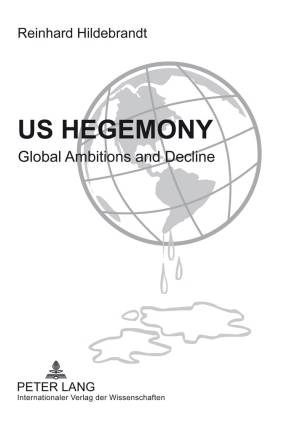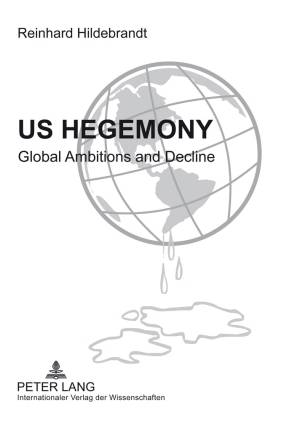
- Retrait gratuit dans votre magasin Club
- 7.000.000 titres dans notre catalogue
- Payer en toute sécurité
- Toujours un magasin près de chez vous
- Retrait gratuit dans votre magasin Club
- 7.000.0000 titres dans notre catalogue
- Payer en toute sécurité
- Toujours un magasin près de chez vous
Us Hegemony
Global Ambitions and Decline- Emergence of the Interregional Asian Triangle and the Relegation of the Us as a Hegemonic Power. the Reorientation of Europe
Reinhard Hildebrandt
Livre relié | Anglais
38,95 €
+ 77 points
Description
With the end of the 'East-West' conflict in 1990, an entirely new constellation seemed to emerge for the first time in the history of mankind. This was perceived by the power elite in the USA as a useful challenge to lend its - until then territorially restricted - hegemony a global dimension. From the perspective of the US elites (Francis Fukuyama), a period of indefinite American control over the rest of the world, in which there would be no more scope for potential rivals to emerge, would characterize the end of history. But some years later, the USA had to accept that the dual hegemony it had built up together with the Soviet Union was fundamental to the continued existence of American hegemony. Its inability to sustain a global hegemony revealed itself in the severe setbacks it suffered in the three wars waged in Iraq, Afghanistan and against the so-called international terrorists. Undeterred by the USA's imminent isolation, influential US experts insisted that US policies were still in line with the US' general perception of its role in the world: firstly to work for the good of the world and, secondly, to exercise its military might even when the rest of the world opposed it. Ignored for a long time by these very experts were the emergence of the interregional Asian triangle (China, India, Russia), Europe's reorientation and, in consequence, the USA's relegation as a hegemonic power.
Spécifications
Parties prenantes
- Auteur(s) :
- Editeur:
Contenu
- Nombre de pages :
- 112
- Langue:
- Anglais
Caractéristiques
- EAN:
- 9783631597316
- Date de parution :
- 22-10-09
- Format:
- Livre relié
- Format numérique:
- Genaaid
- Dimensions :
- 148 mm x 210 mm
- Poids :
- 319 g

Les avis
Nous publions uniquement les avis qui respectent les conditions requises. Consultez nos conditions pour les avis.






